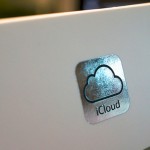China is the world’s most populous country, and one of Apple’s biggest markets. Apple, it was reported this week, has started to keep personal data on servers located in China. This marks the first time that an American technology company has stored user data in China.
The rationale behind the move, according to Apple, is to allow for faster transfer speeds of iCloud data to iOS and Mac users. iCloud allows users to synchronize data between Apple devices, as well as store certain types of data in the cloud.
Google, one of Apple’s main rivals in China, has refused to store user data on Chinese soil due to censorship and privacy worries.
According to a report out of Reuters, Apple’s iCloud data will be stored on servers that will be provided by China Telecom, one of China’s largest mobile telecom carriers.
In a statement on Friday, Apple said:
“Apple takes user security and privacy very seriously We have added China Telecom to our list of data center providers to increase bandwidth and improve performance for our customers in mainland china. All data stored with our providers is encrypted. China Telecom does not have access to the content.”
Several sources close to the matter have said that Apple will heavily encrypt the data, and will store the encryption keys off shore. That will make the data unavailable to China Telecom.
Privacy and Security
Security and privacy have long been two of Apple’s main concerns when it comes to online data. The California company has repeatedly stated that they have devised encryption systems for services like iCloud and iMessage that even they themselves cannot break.
Even with these security measures in place, placing data in China is dangerous according to some analysts. “If they’re making out that the data is protected and secure that’s a little disingenuous because if they want to operate a business here, that’d have to comply with demands from the authorities,” Jeremy Goldkorn said in a statement to Reuters. Goldkorn is the director of Danwei.com, a Chinese research firm.
China is the fastest growing market Apple competes in for both its Macs and iOS devices. Sales of the iPhone were up 50% year over year just this past quarter.





